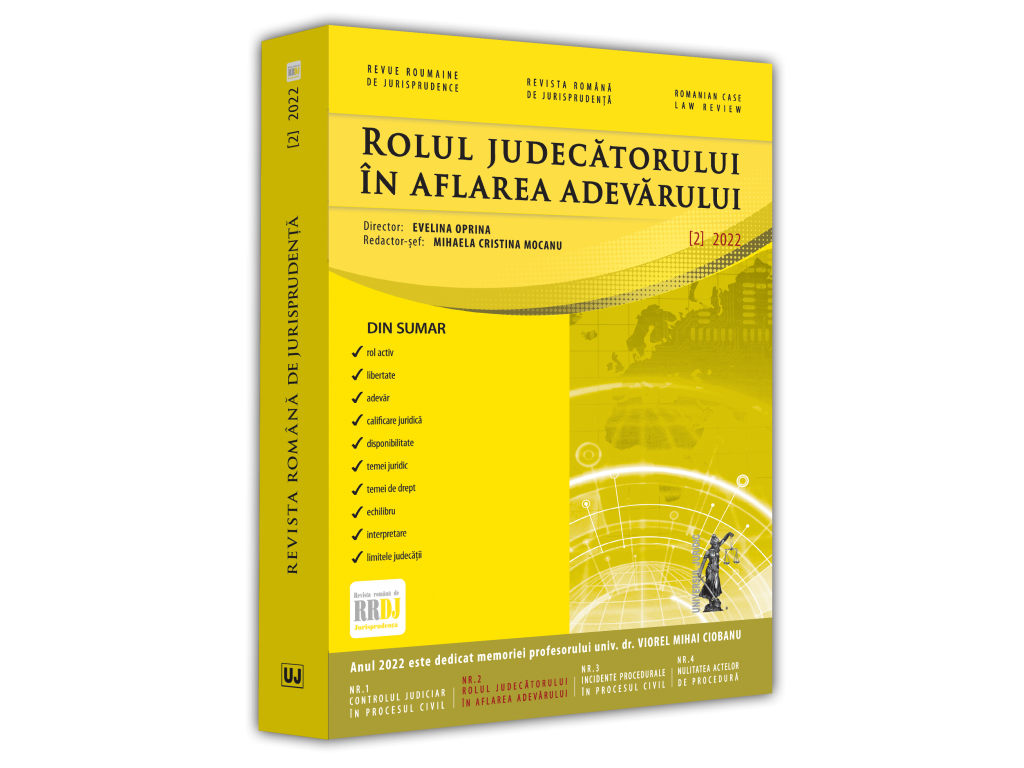Some considerations on the exercise of the judge's active role in relation to the legal basis of the claim
DEZBATERI
Abstract
The provisions of Article 22 para. (5) of the Civil Procedure Code, even if, like the regulation as a whole, they can no longer be regarded as texts of maximum novelty, still invite doctrinal reflection, but also, at times, hesitation in case law.
There is still a temptation to reduce the scope of the rule which, apart from its somewhat confusing wording, focuses not on what the judge can and must do – change the legal basis of the claim – but on what he cannot do – change the legal basis of the claim in a case, almost implausible in practice, where the parties have, in advance, by their agreement, restricted such interference.
The complex of “pre-delivery" and the fear of violating the principle of availability are the main impediments, not so much legal as... psychological, to the substitution of the legal basis of the claim by overcoming the stubbornness of a plaintiff who is in major error as to the actual legal basis applicable to the case.
At the same time, although, in principle, the obligation imposed on the judge not to remain hostage to the legal basis, erroneously referred to in the application, as a genuine duty of public policy, should not allow a prolongation of the trial, one directly proportionate to the time limits consumed under that initial legal basis, which would affect another fundamental principle of the civil process, namely that of resolving the case at an optimal and predictable pace. The latter requirement is all the more real since, unlike other cases where the procedural framework is changed (e.g. the introduction of a third person into the case ex officio, which, according to the law, if at least one of the parties consents to it, may even result in the case being reopened), the solution of substituting the legal basis of the application ex officio does not benefit from an express legal provision authorising the judge to do so without a time limit.
Keywords: active role, Art. 22 para. (5) of the Civil Procedure Code, legal basis of the application, change, ex officio, of the legal basis, preliminary ruling, principle of availability.








